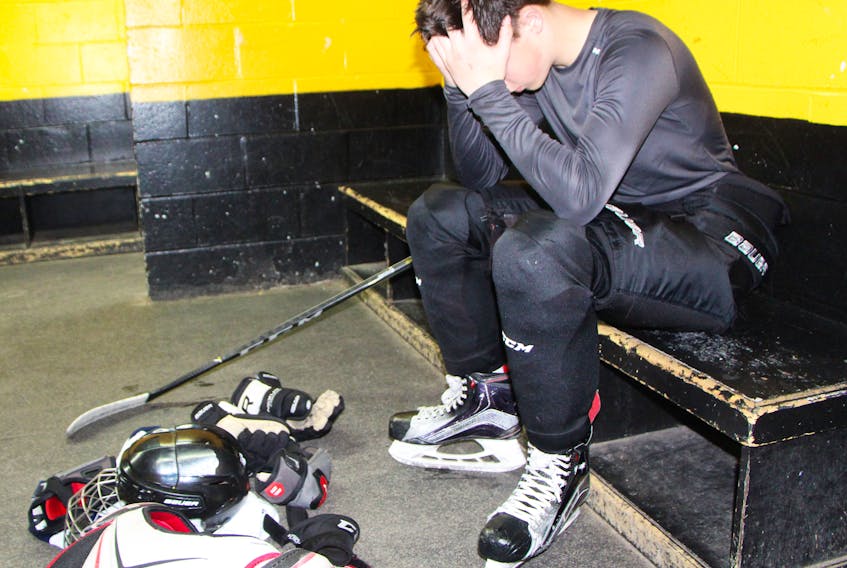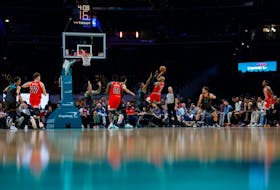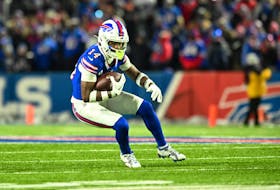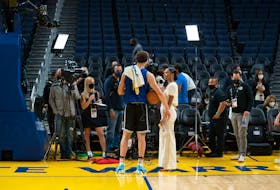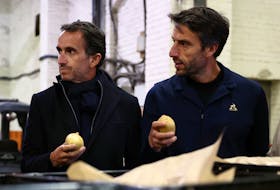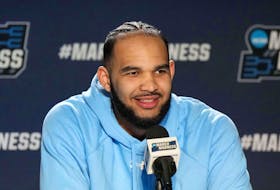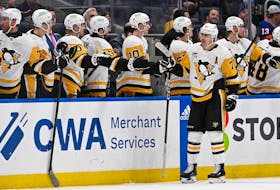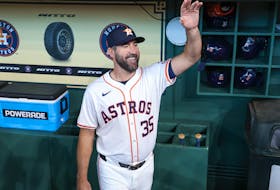ANTIGONISH, N.S. - Times change.
In the 1995 Stanley Cup final, New Jersey Devils’ defenceman Scott Stevens levelled Detroit Red Wings forward Vyacheslav ‘Slava’ Kozlov with a thunderous body check. Commentators gushed over Stevens’s ferocity and intimidating prowess.
In the 2003 Stanley Cup final, the same Stevens catches an unsuspecting Paul Kariya of the Anaheim Ducks with a devastating hit. The commentary was changing. Timing of the hit was questioned. More concern was expressed for Kariya, particularly with his history of concussions. Kariya returned to score a big goal for the Ducks and, at the time, was seen as tough and heroic. In retrospect, measured by today’s standards, it was irresponsible he was even on the ice.
In this year’s NHL playoffs, Washington Capitals forward Tom Wilson, known as one of the league’s heaviest hitters, rammed Pittsburgh forward Zach Aston-Reese, breaking his jaw and giving him a concussion. Wilson was suspended three games.
Indeed, times change.
READ MORE:
• ‘Our approach has changed a lot’: Antigonish concussion expert
• ‘Education needs to be reinforced yearly’: Antigonish coach
• Two journeys: Antigonish women struggle with lingering impact of concussions
• ‘All we have is hope’: Antigonish women talk about life after head injuries
Three men well known in Nova Scotia’s hockey circles – Shawn Evans, Doug Doull and Craig MacDonald – were more familiar as players with Stevens’ era than Wilson’s. Each has had experience with concussions.
“In my day as a player, I certainly did,” said Evans, head coach and general manager of the Truro junior A Bearcats. “I don’t remember if it was diagnosed, I just remember where it happened and when it happened.”
The incident came in an American Hockey League game, where Evans spent most of his playing career, with a few games in the NHL.
“There was more to that particular incident than head trauma, I remember that clearly … and the rest was diagnosed.”
Doull played 37 NHL games with Washington and Boston. He’s the Pictou County junior A Weeks Crushers’ coach and GM and toiled in the junior, university and pro ranks from 1991 to 2006.
He recalled suffering a severe concussion and breaking his orbital bone while in the AHL.
He missed the rest of the season, about a month of hockey.
“I had to get cleared again to play and actually went down to a doctor in Pittsburgh.
“That was my one brush, but I have been knocked out cold and everything else; but never really diagnosed or never really reported, I just got up and kept on going,” said Doull, who played a rugged style, dropping the gloves when needed.
MacDonald, who coaches minor hockey in Antigonish and is the most recent retiree, had a university and professional career that spanned 1995 to 2013. He played 233 games in the NHL and said his concussion came prior to turning pro, in university hockey.
“It was more just a ‘bell ring,’ I guess, which seemed to be common back then,” he said.
MacDonald, who coaches minor hockey in Antigonish these days, said he certainly sensed more awareness and sensitivity with regards to concussions towards the end of his career, which included stints in Europe.
“The awareness was being heightened but I’ve been out of it for, let’s say, 10 years here in North America, so I’m like anyone else, I see it in the media, the news, there is huge awareness right now,” he said.
Evans has been coaching Truro in the Maritime Junior Hockey League since 2002; Doull has been working in the same league for about five years, plus a couple with St. Mary’s University.
“We follow a protocol,” Evans said of league-mandated regulations around concussions.
Last season, the Bearcats had a player on that protocol. The player, he said, was held out until he passed all the protocol and was cleared by the team doctor.
Doull agrees, measures taken before a player returns to action are stringent.
“The protocol for us now is, if a player suffers a concussion, he has to go through a week of base-line testing and, if he is fine to play after a week, doesn’t show any symptoms, then he is cleared to play,” he said. “And we’ll tell them to take all the precautions, for sure.”
That, along with vigilant officiating, tells Doull the league is serious.
“The refs are really looking for high hits and hits to the head.”
All three are prominent sports figures in their respective communities and all are hockey dads. So, naturally, they can relate to the worries of other parents over head injuries.
“If they asked the question I would say, it’s a concern for sure,” MacDonald said.
“The game is faster, quicker, the players are bigger. But if the child has a passion for the game and a love for the sport then, as a parent, I would say I want them involved in the game. You don’t want to hold them back.”

